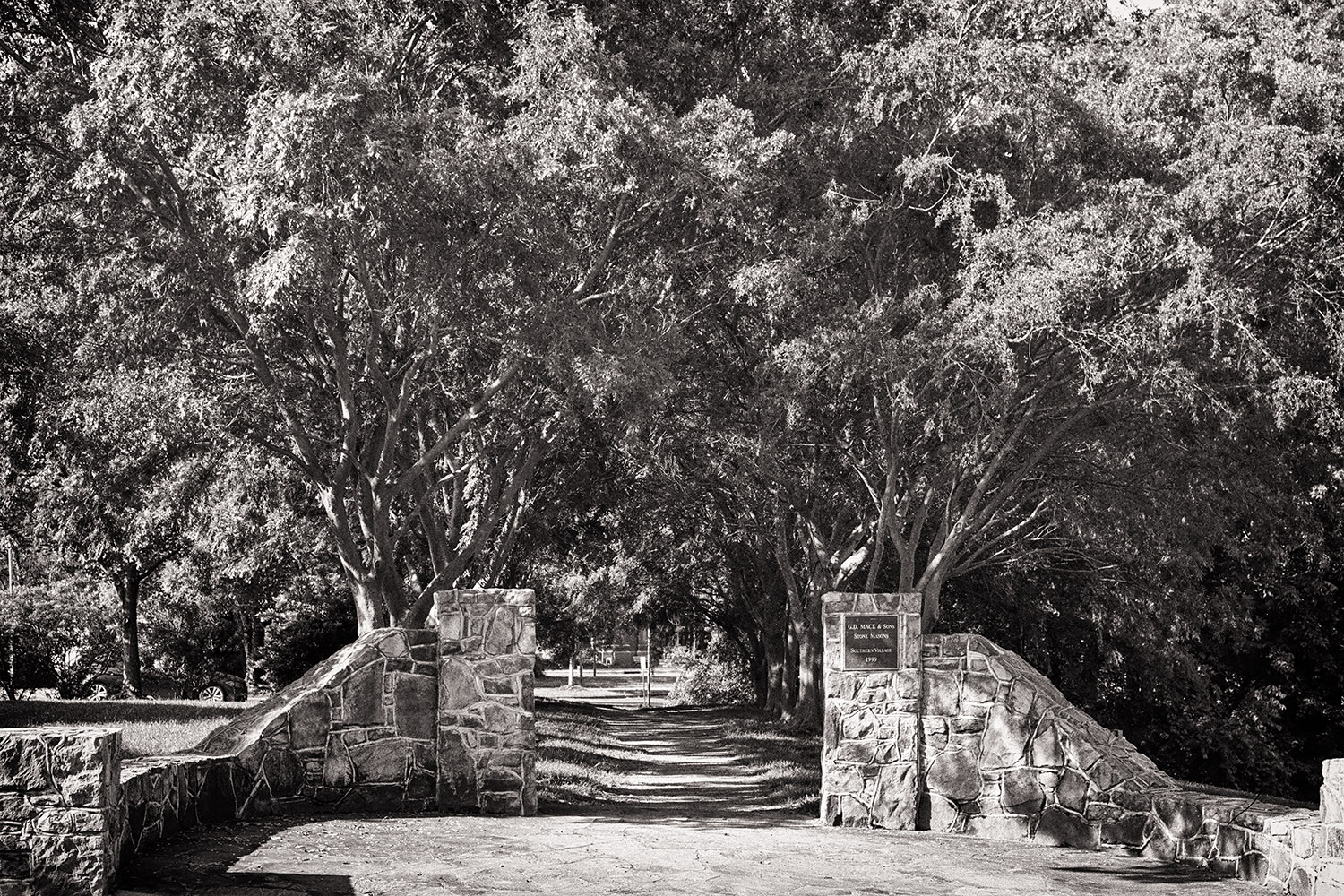
A couple of years ago, I began to experiment with using film again. A description of my first experiences with Portra 400 and what it was like to shoot film after many years of working with digital cameras may be read here. Several more pages of photos taken with Portra and Ektar film are located in this section of the web site (check the index on the left). I also took a few Portra images with the wonderful 1975 Nikkormat FT2; these may be found in this gallery. For a while now, I wanted to try some black-and-white film again (something I haven't done in about forty years!), and I thought that this would be a good opportunity to use the Nikkormat a bit more. In May of this year, I bought some Kodak T-Max400 film, and a selection of images from the first roll are shown on this page.
Click on any image to see a larger (3000 x 2000 pixel) version!

|
Gate to Scroggs Elementary School (9:03 a.m.) |
Nikkor 50mm ƒ1:1.8, ISO 400, 1/125, ƒ/8 |
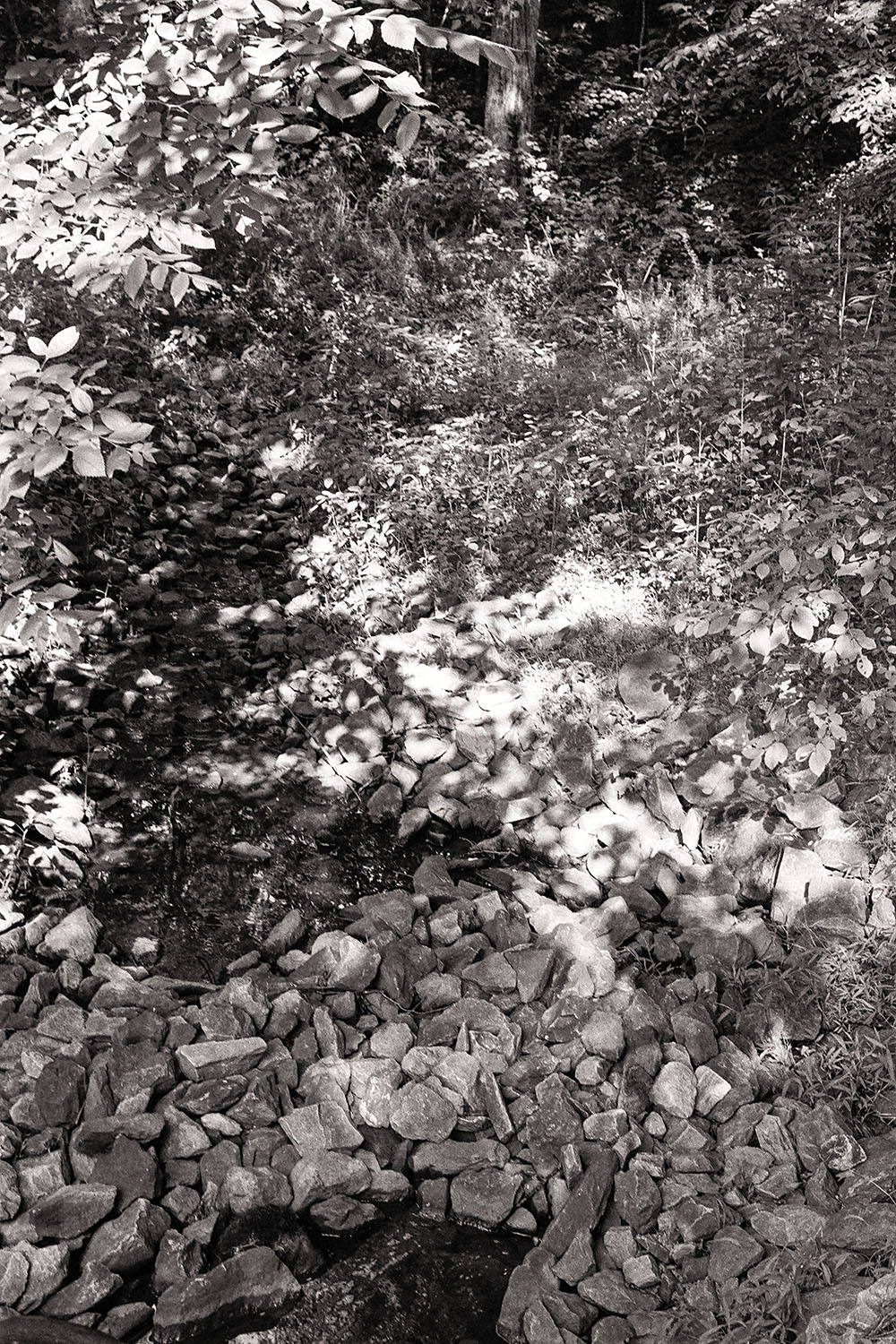
|
Brook (9:08 a.m.) |
Nikkor 50mm ƒ1:1.8, ISO 400, 1/125, ƒ/8 |
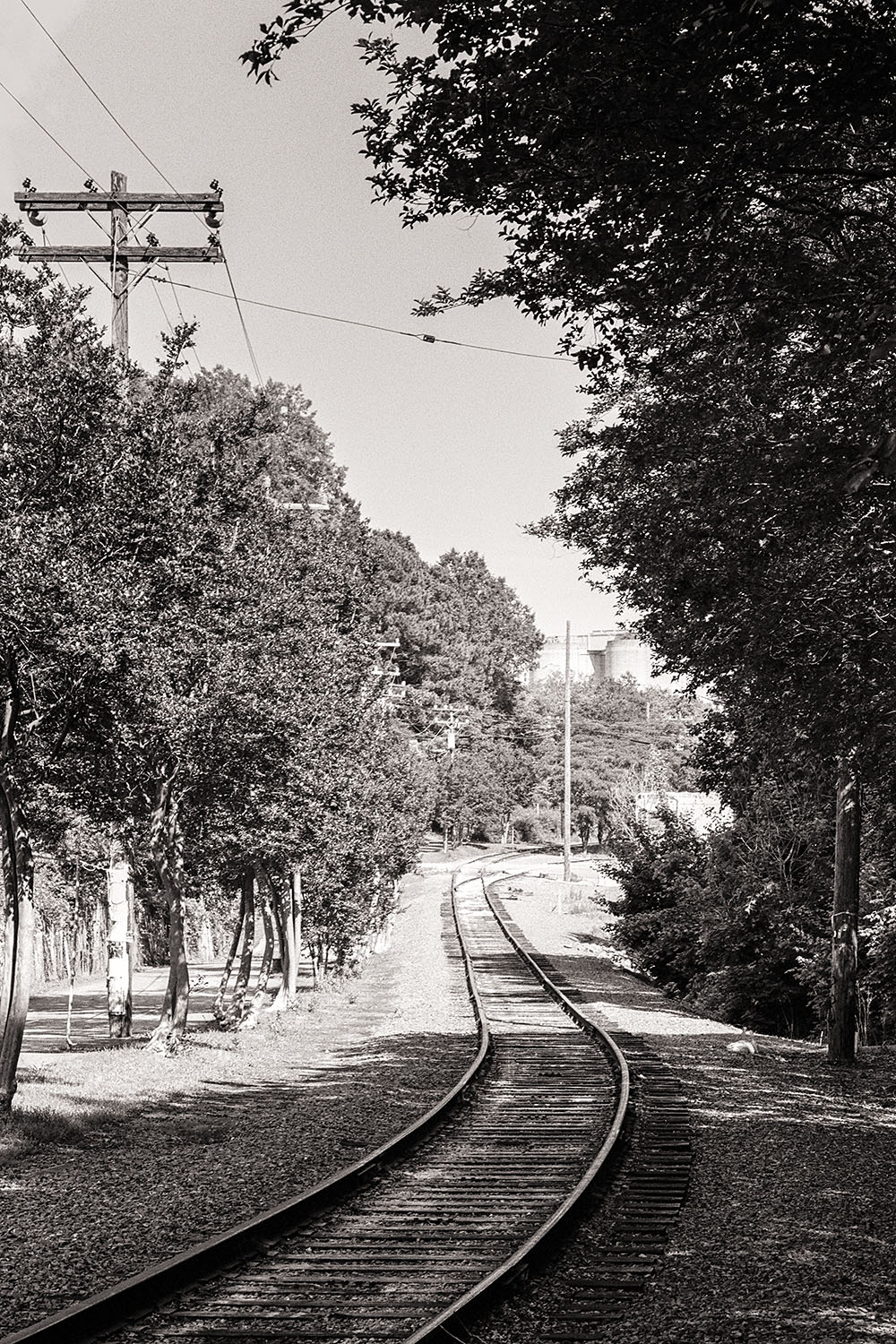
|
Railroad tracks (4:39 p.m.) |
Nikkor 85mm ƒ1:1.8, ISO 400, 1/250, ƒ/11 |
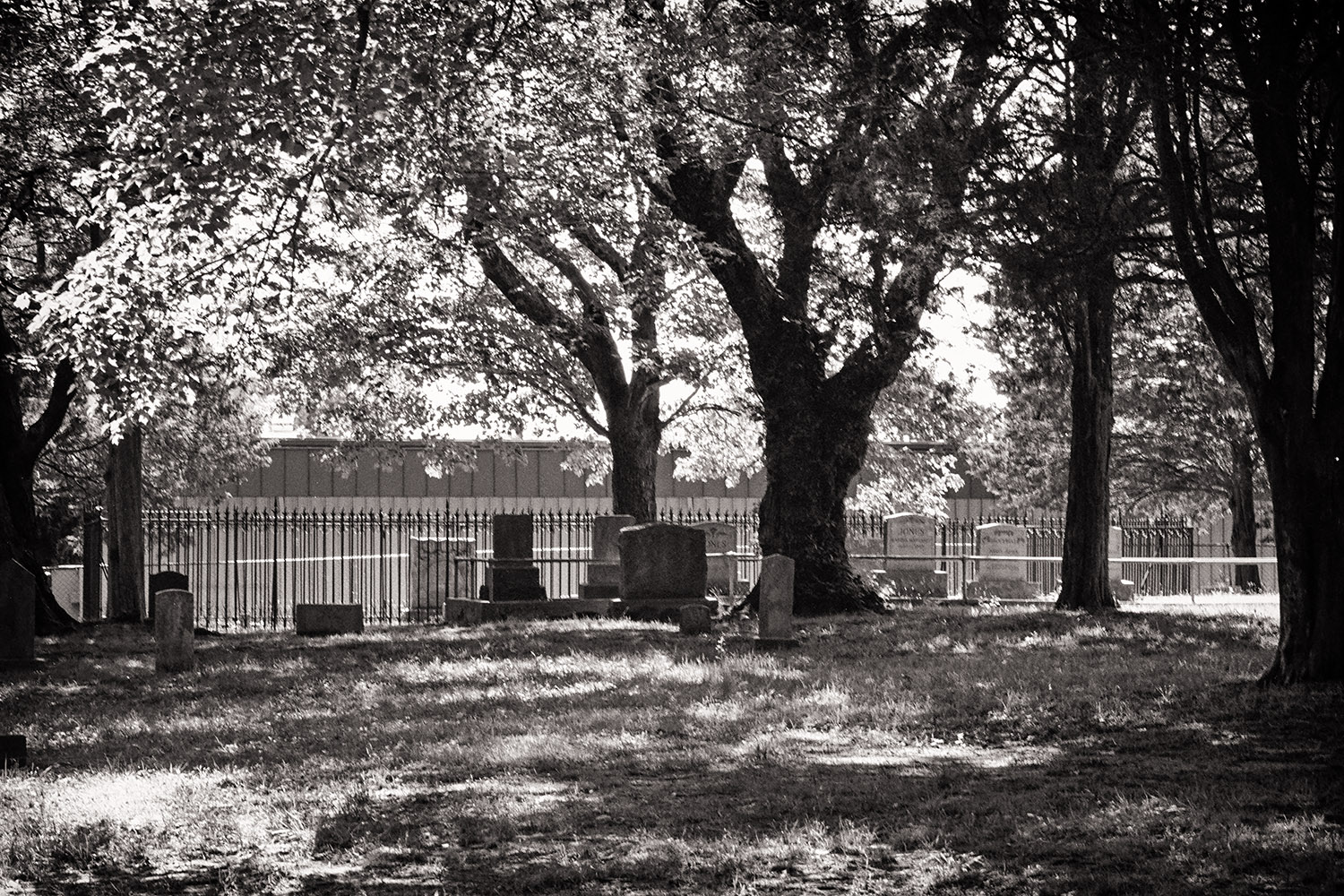
|
Old cemetery (4:50 p.m.) |
Nikkor 85mm ƒ1:1.8, ISO 400, 1/60, ƒ/16 |
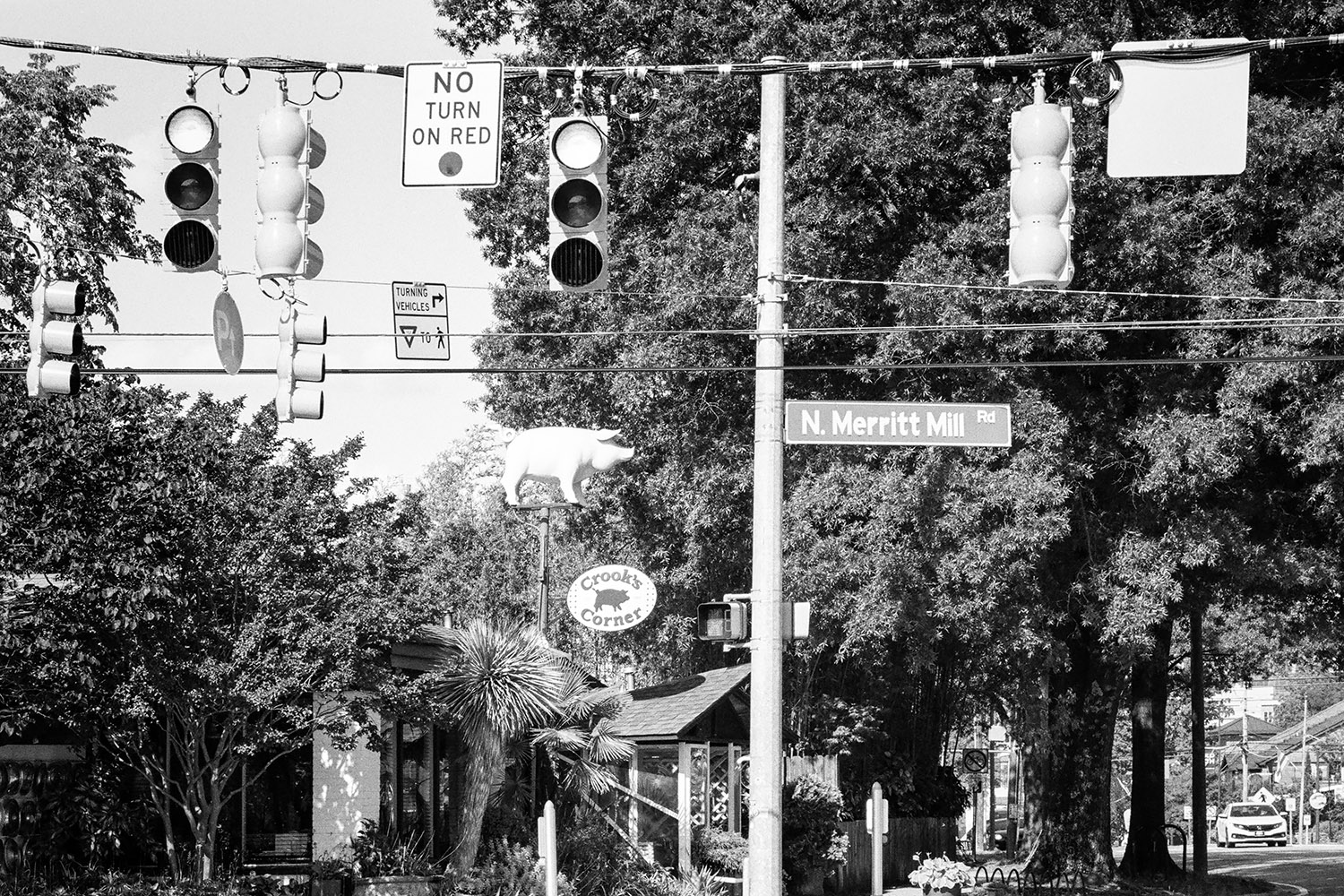
|
Where East Main St. turns into West Franklin St. (5:02 p.m.) |
Nikkor 85mm ƒ1:1.8, ISO 400, 1/250, ƒ/16 |
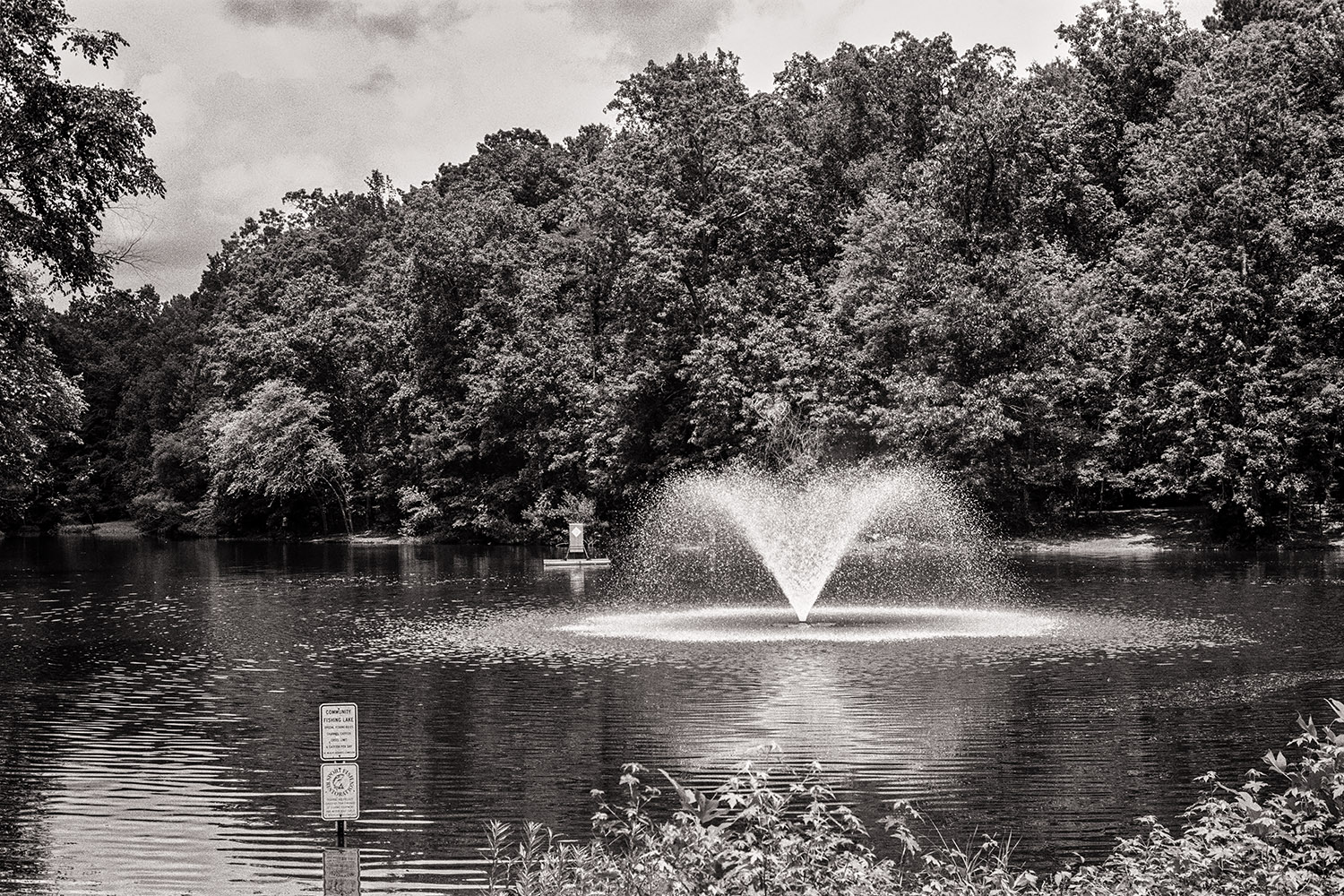
|
Anderson Community Park Lake (2:21 p.m.) |
Nikkor 50mm ƒ1:1.8, ISO 400, 1/250, ƒ/8 |
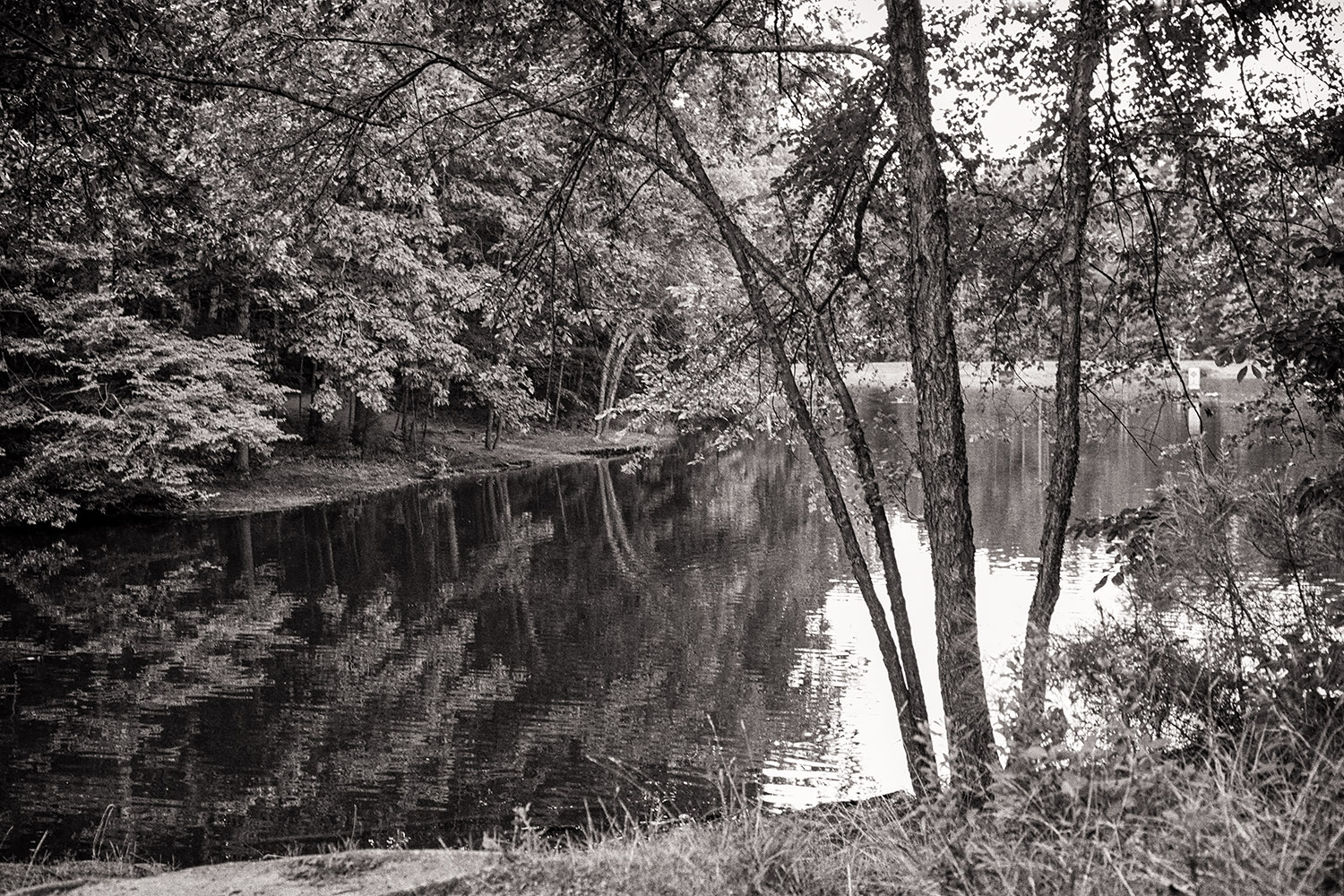
|
Anderson Community Park Lake (2.53 p.m.) |
Nikkor 50mm ƒ1:1.8, ISO 400, 1/60, ƒ/5.6 |
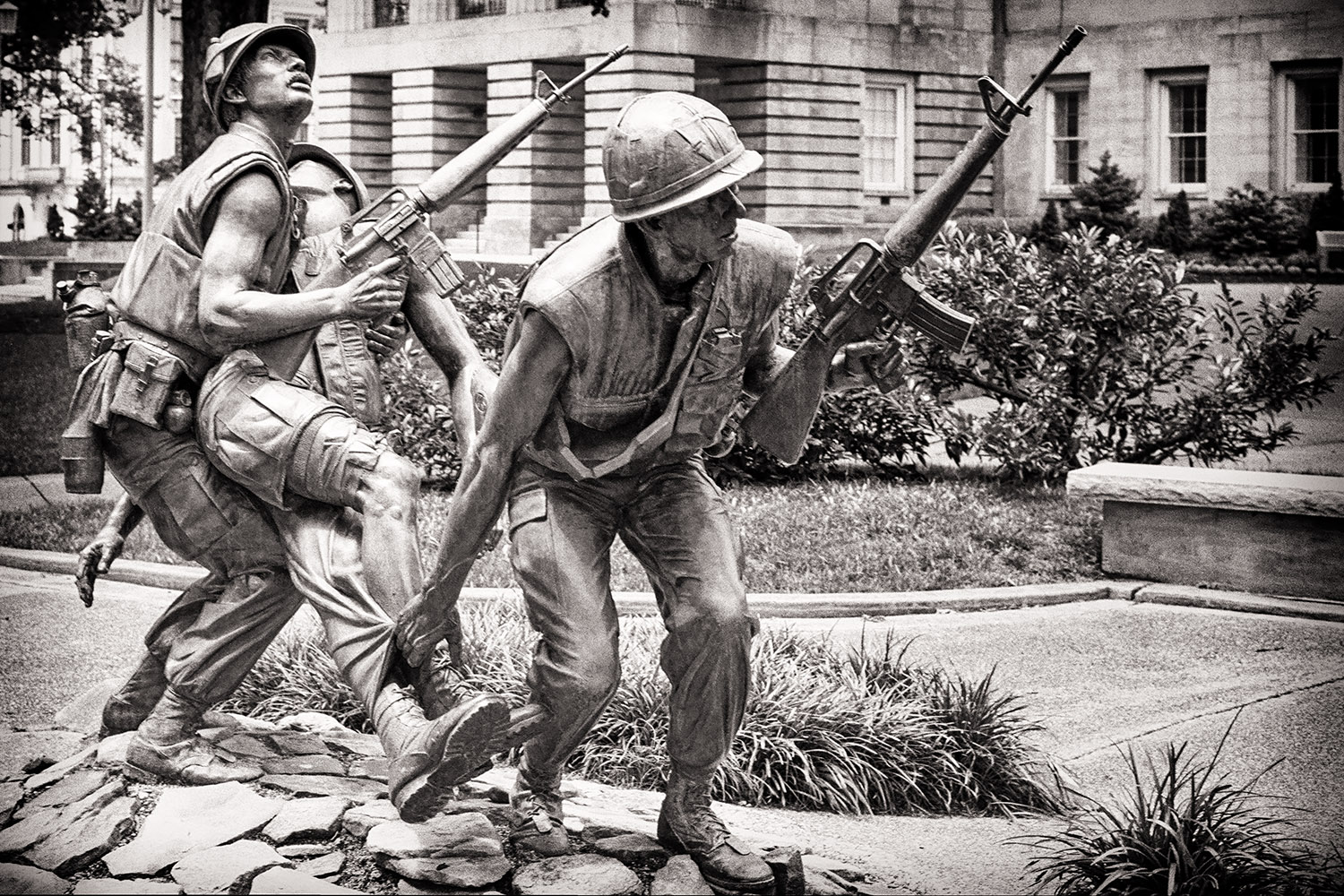
|
Vietnam Veterans Memorial (11:55 a.m.) |
Nikkor 50mm ƒ1:1.8, ISO 400, 1/125, ƒ/8 |
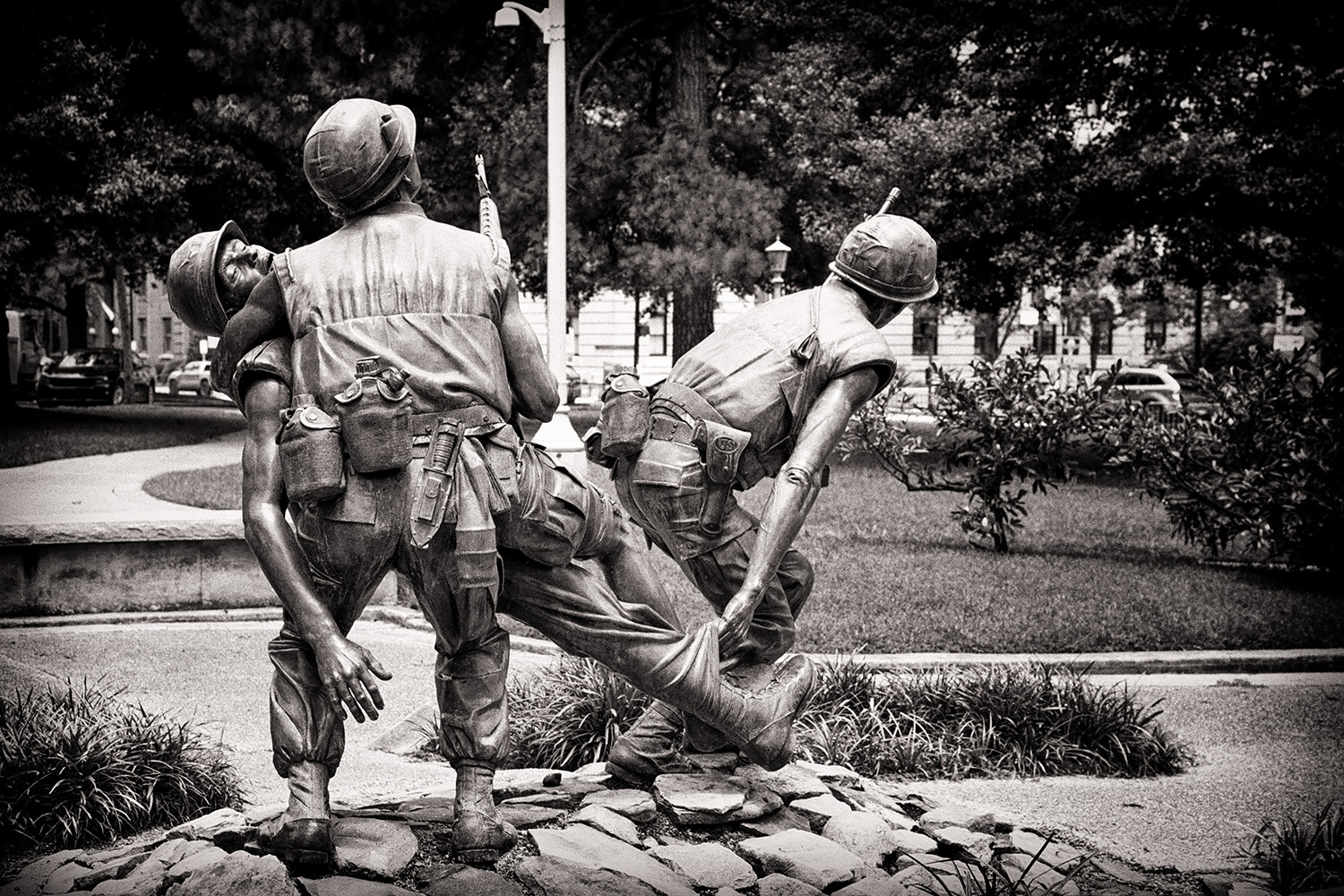
|
Vietnam Veterans Memorial (11:57 a.m.) |
Nikkor 50mm ƒ1:1.8, ISO 400, 1/125, ƒ/8 |
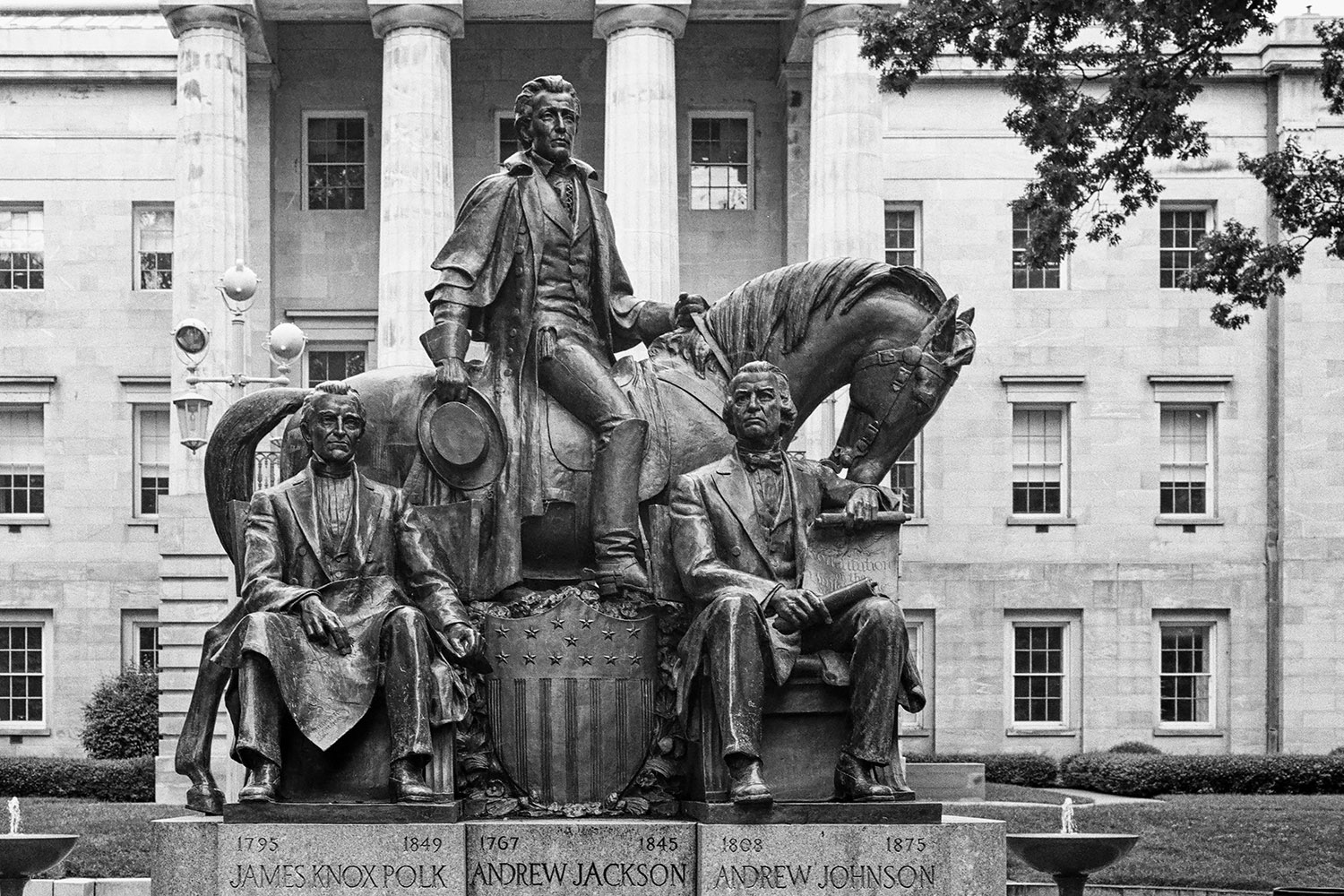
|
Monument to three US Presidents born in North Carolina (12:00 p.m.) |
Nikkor 50mm ƒ1:1.8, ISO 400, 1/125, ƒ/8 |
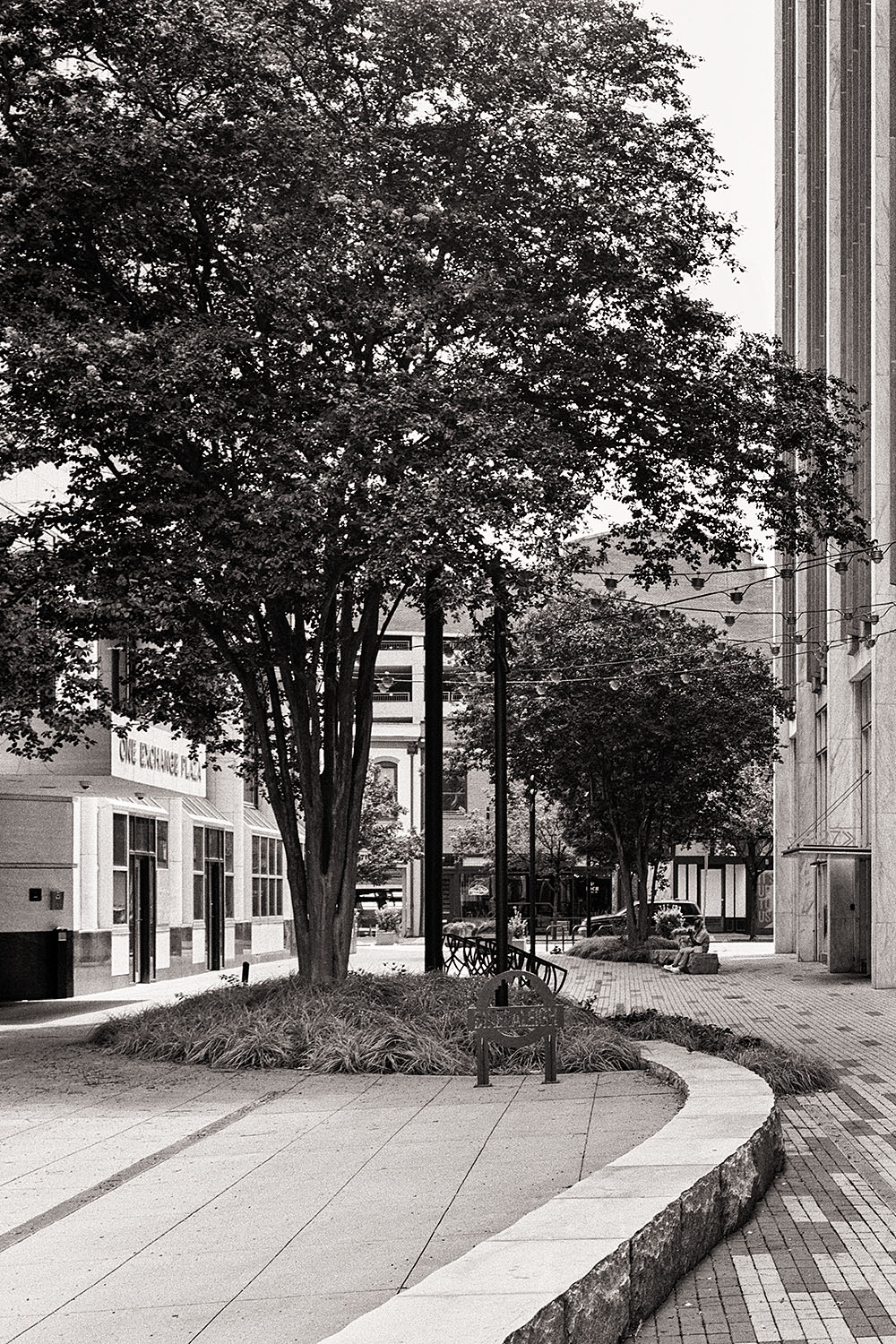
|
One Exchange Plaza (12:09 p.m.) |
Nikkor 50mm ƒ1:1.8, ISO 400, 1/125, ƒ/8 |
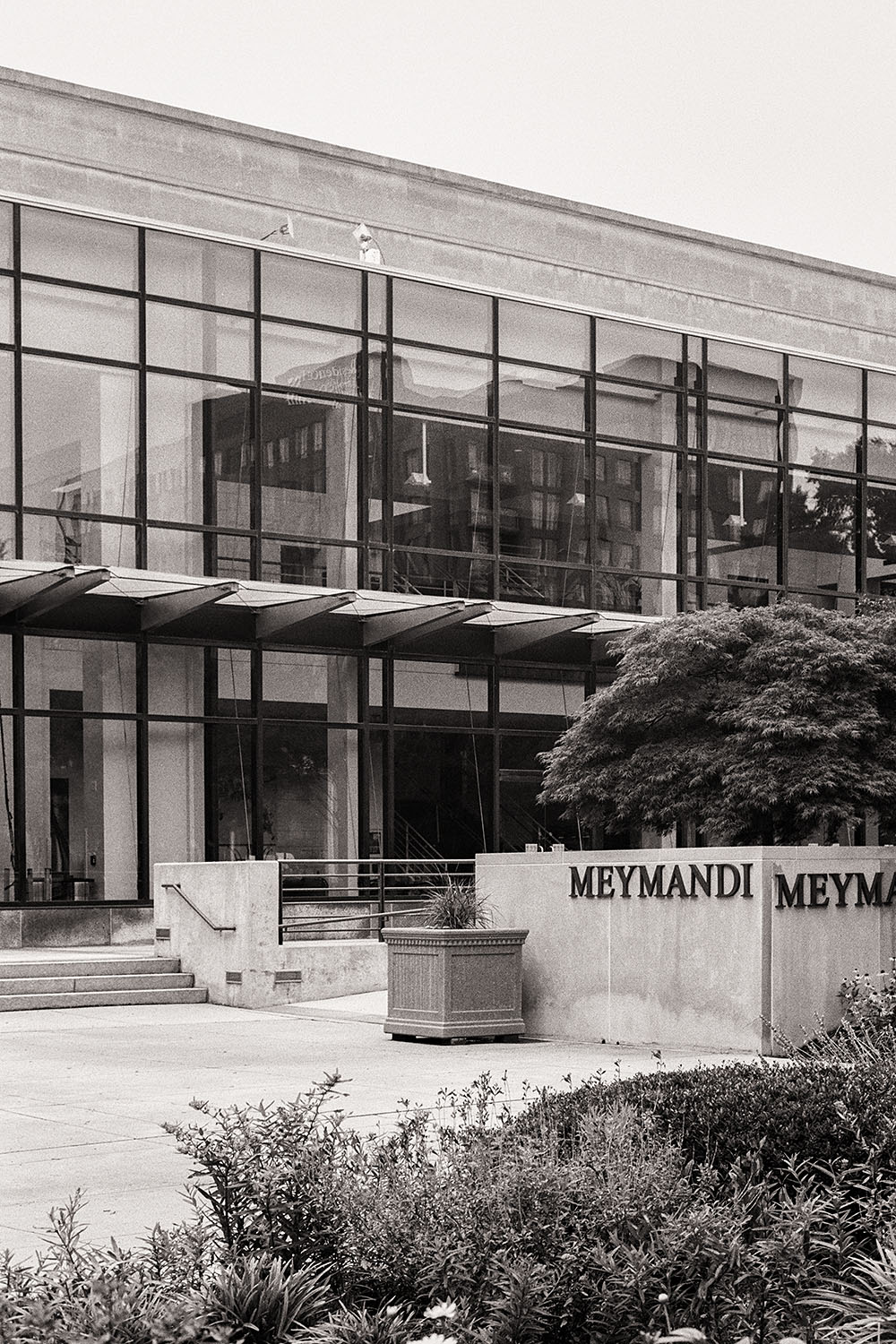
|
Meymandi Concert Hall (12:23 p.m.) |
Nikkor 50mm ƒ1:1.8, ISO 400, 1/125, ƒ/8 |
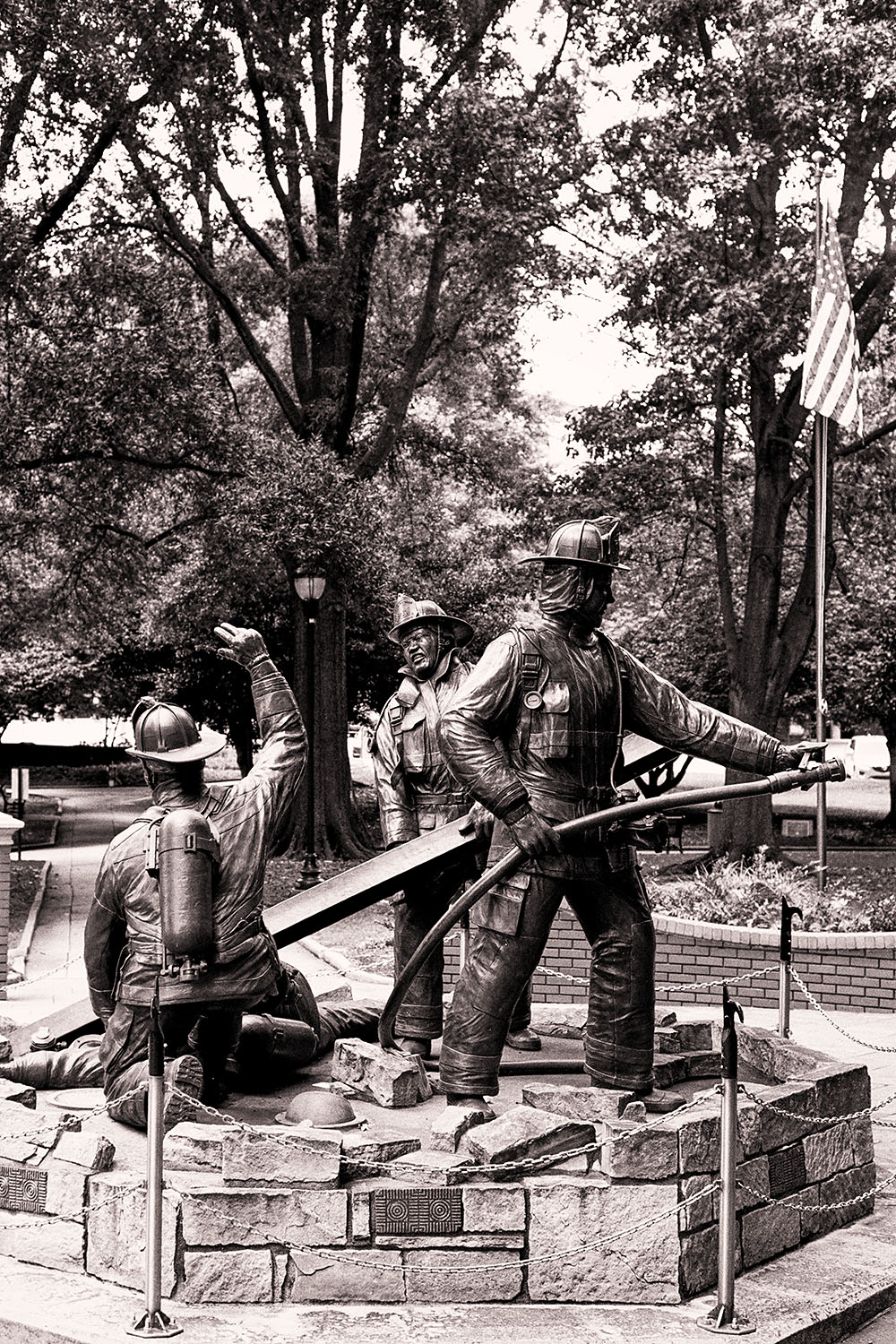
|
Fallen Firefighters Memorial (1:42 p.m.) |
Nikkor 50mm ƒ1:1.8, ISO 400, 1/60, ƒ/5.6 |
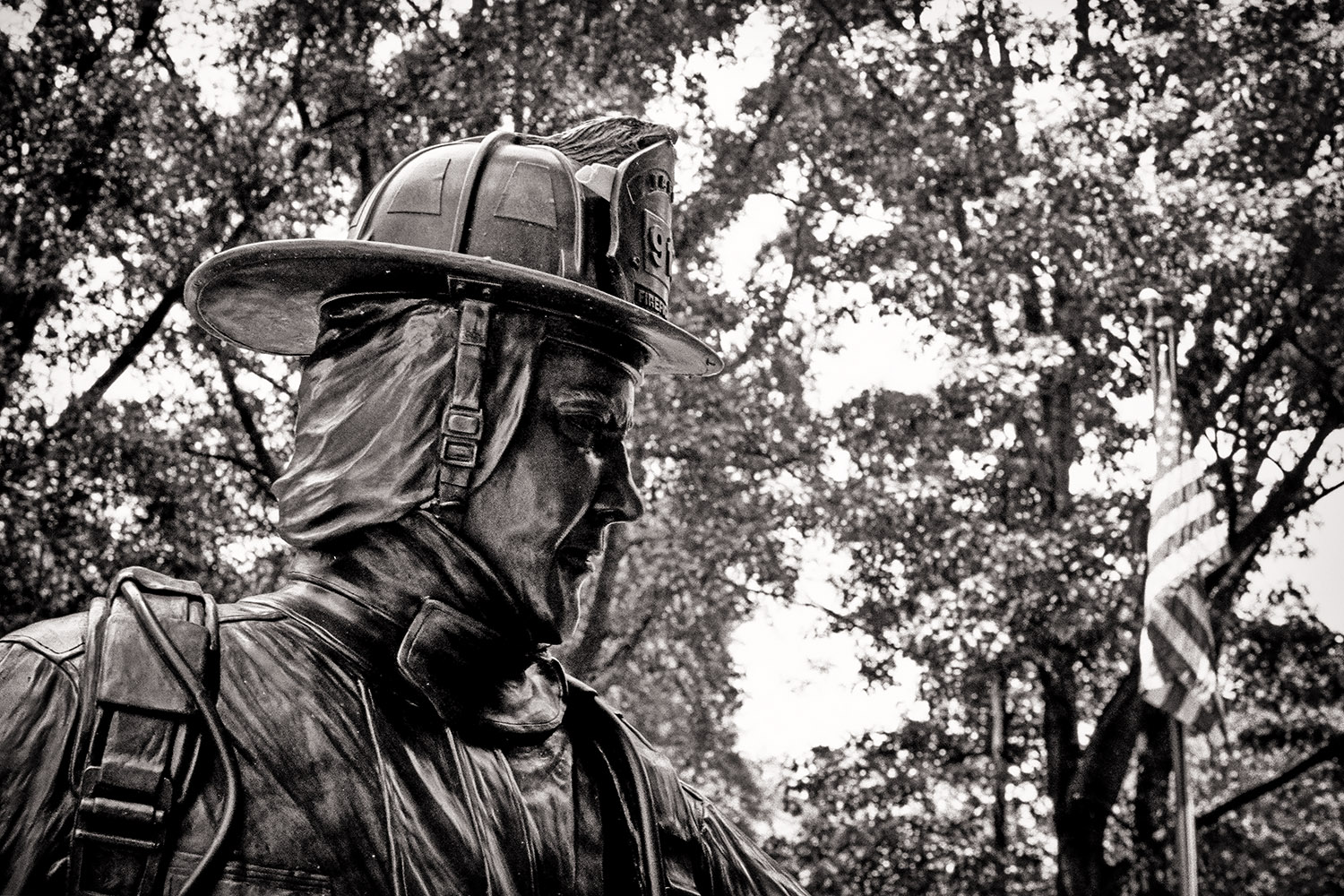
|
Fallen Firefighters Memorial (detail) (1:44 p.m.) |
Nikkor 50mm ƒ1:1.8, ISO 400, 1/60, ƒ/11 |
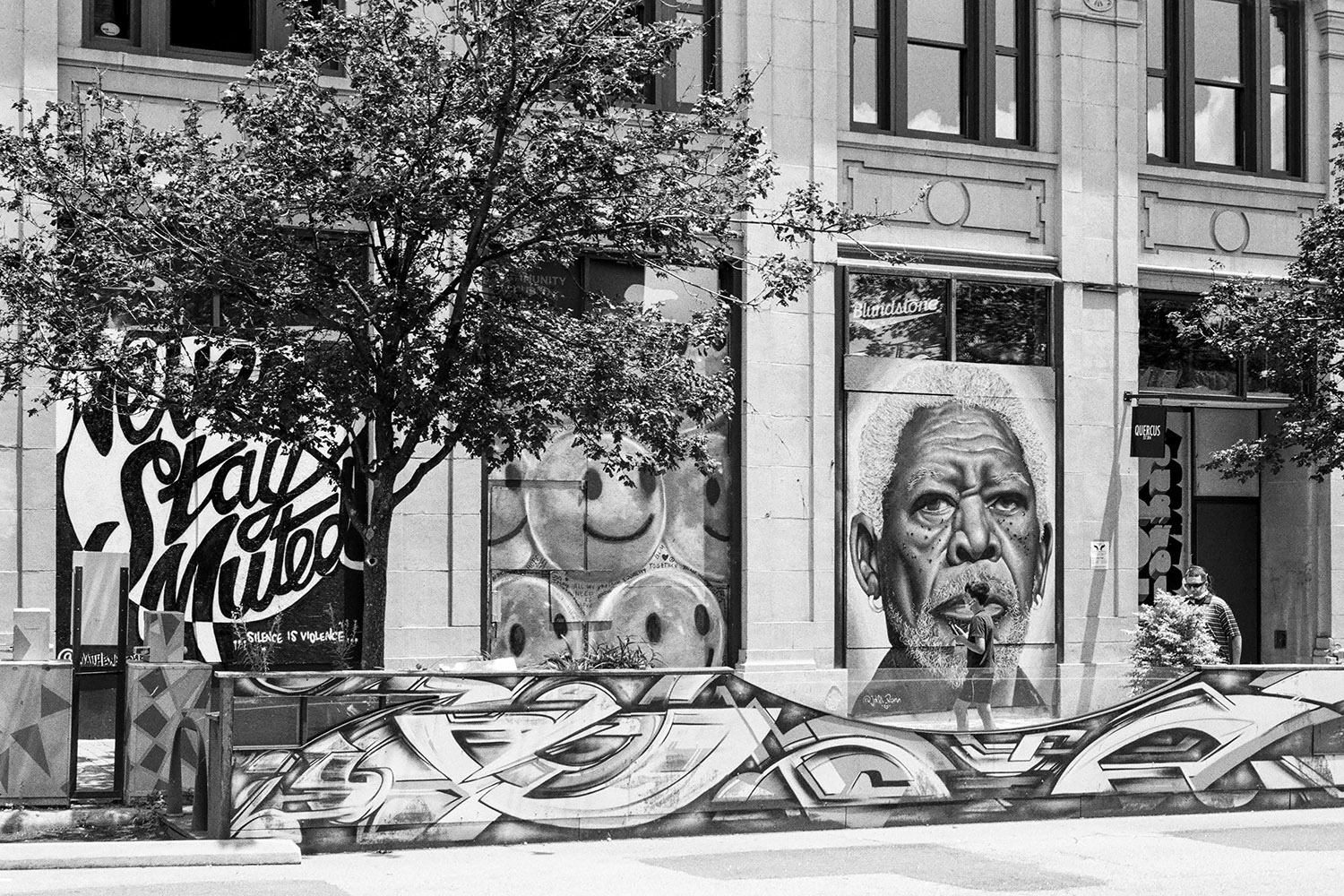
|
Wall art on West Hargett Street (1:54 p.m.) |
Nikkor 50mm ƒ1:1.8, ISO 400, 1/125, ƒ/11 |
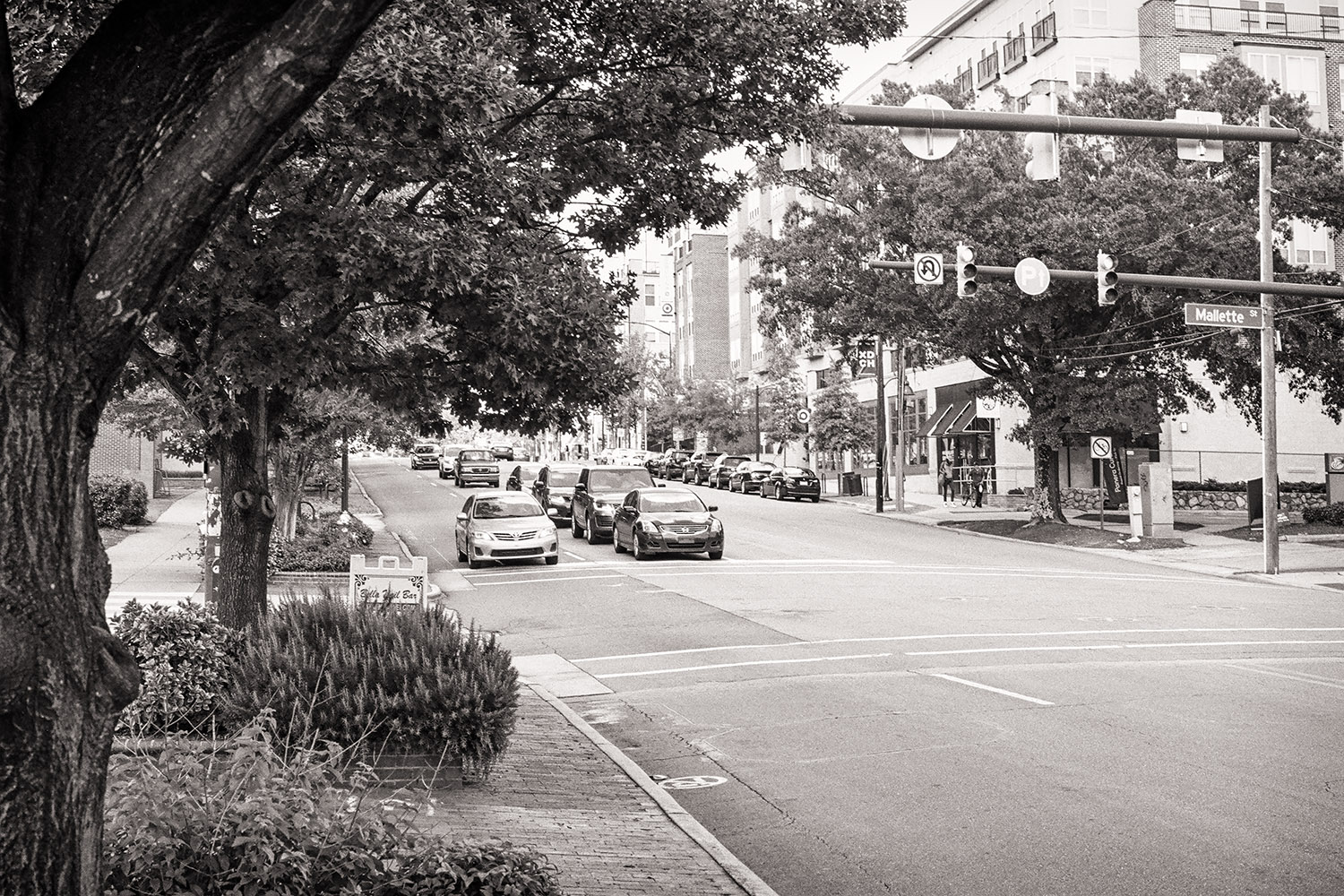
|
Looking northeast on West Franklin Street (4:59 p.m.) |
Nikkor 50mm ƒ1:1.8, ISO 400, 1/125, ƒ/11 |
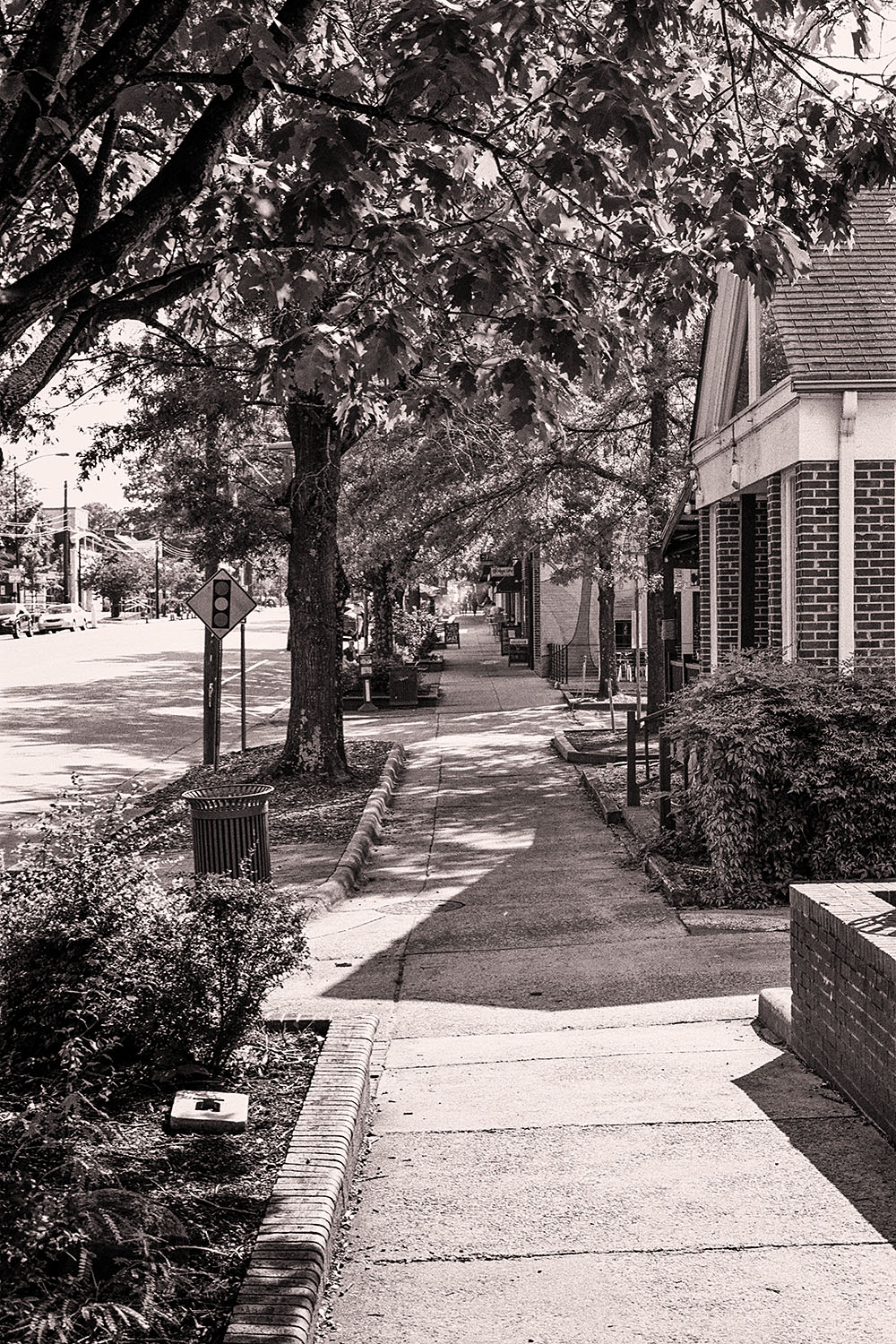
|
Same spot, looking southwest (5:01 p.m.) |
Nikkor 50mm ƒ1:1.8, ISO 400, 1/125, ƒ/11 |
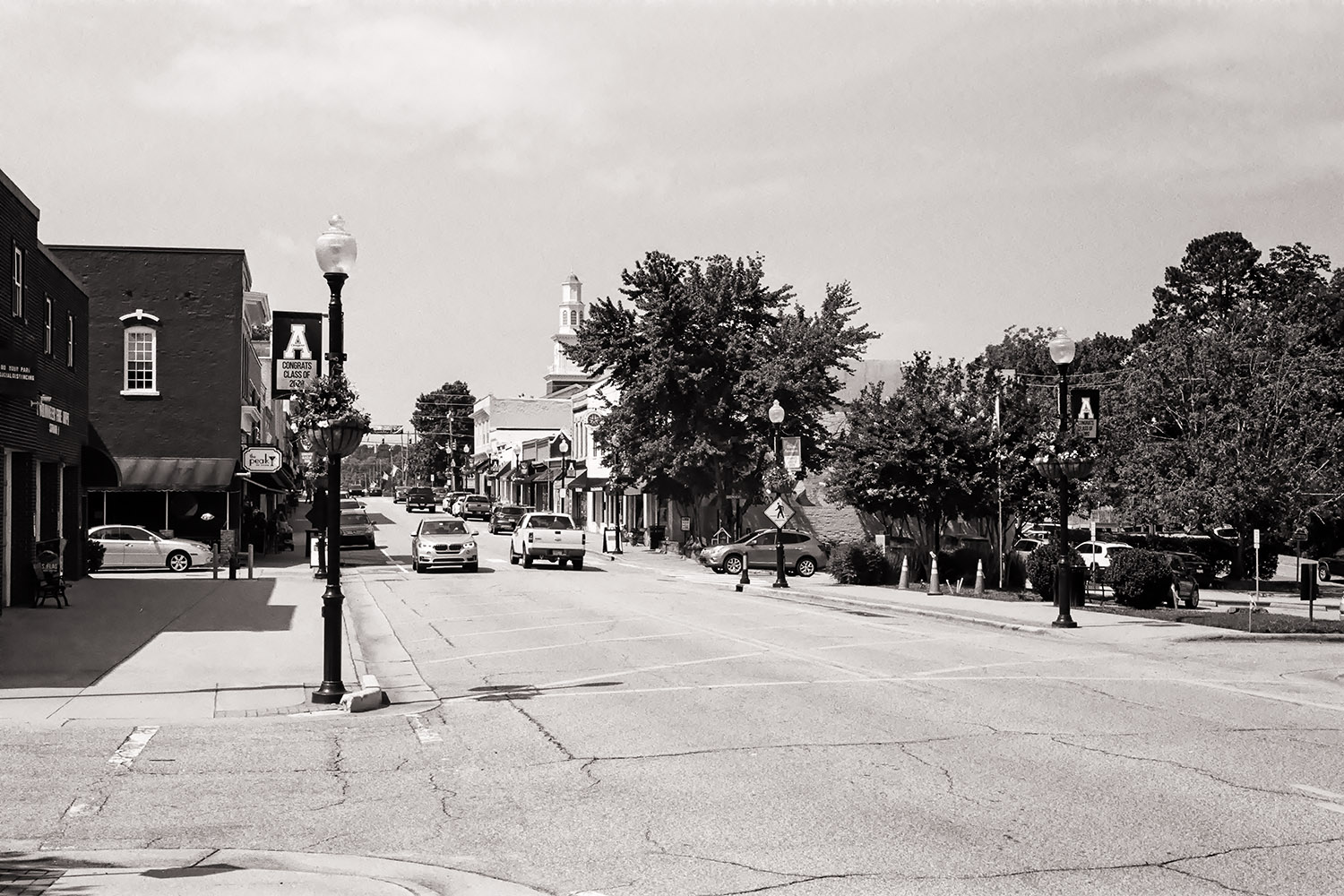
|
North Salem Street (10:50 a.m.) |
Nikkor 50mm ƒ1:1.8, ISO 400, 1/250, ƒ/22 |
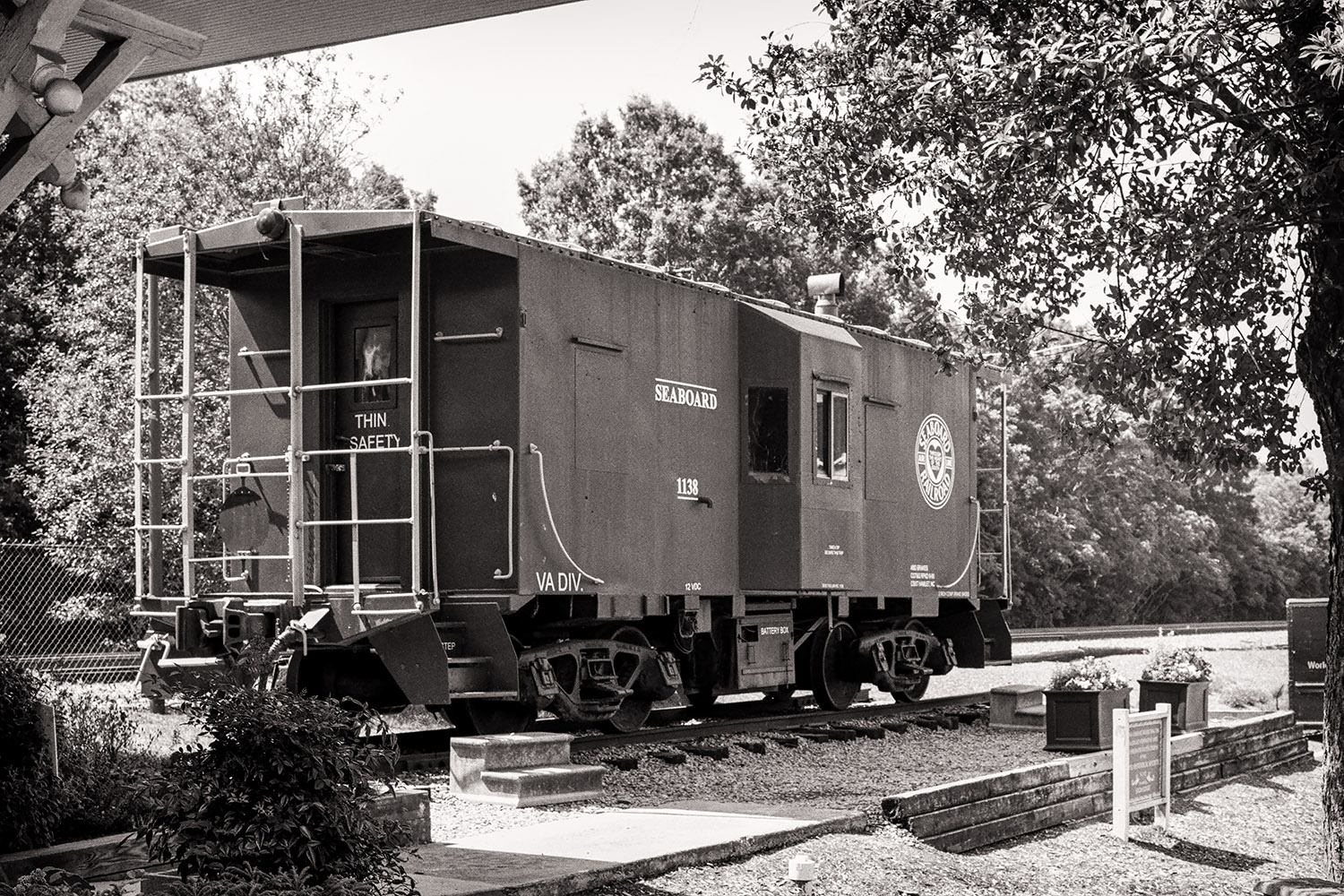
|
Caboose at the Apex Union Depot (10:52 a.m.) |
Nikkor 50mm ƒ1:1.8, ISO 400, 1/250, ƒ/11 |
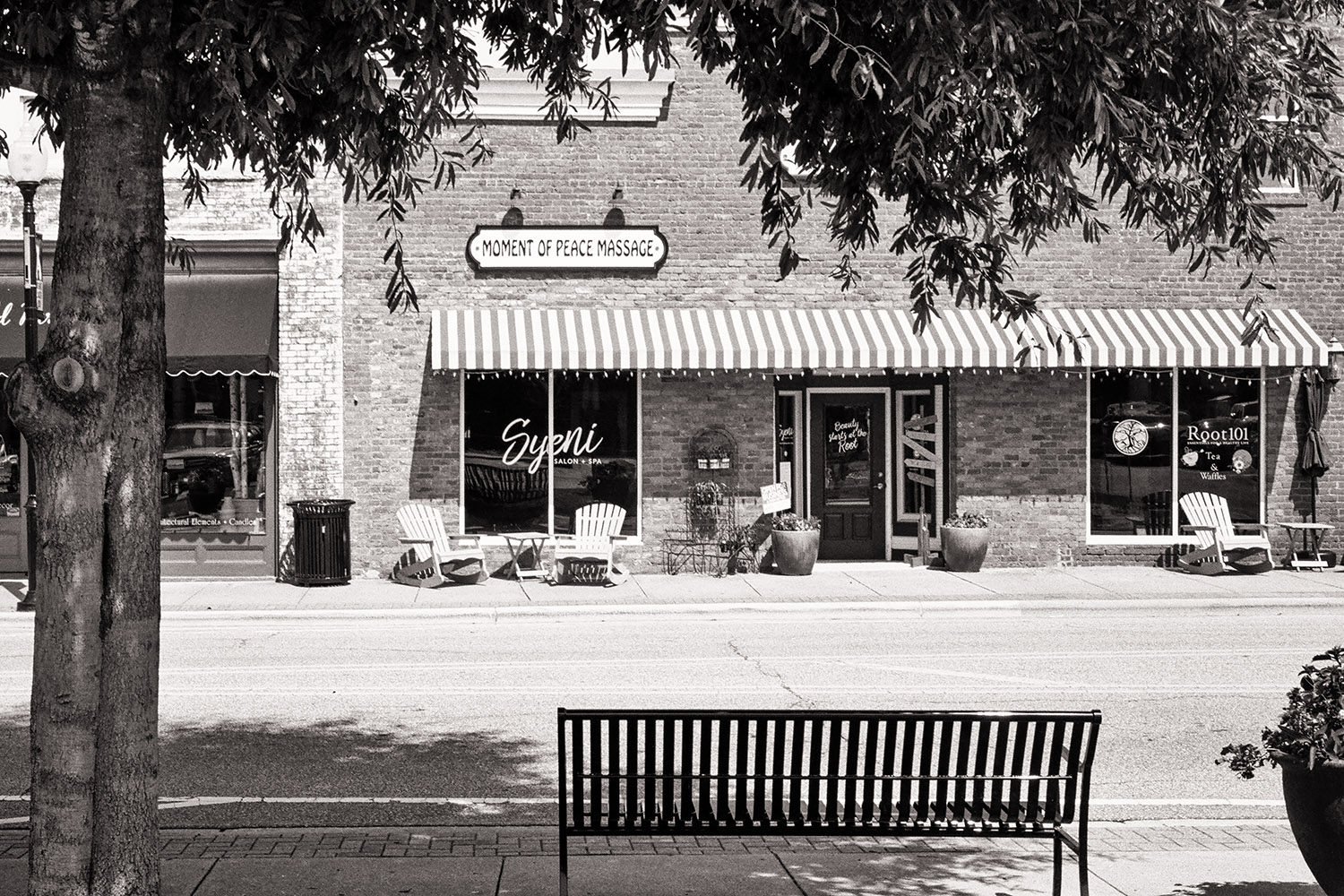
|
Looking across North Salem Street (10:57 a.m.) |
Nikkor 50mm ƒ1:1.8, ISO 400, 1/250, ƒ/22 |
The fun of shooting with the iconic (Nikonic?) Nikkormat begins with picking up the camera: it feels amazingly well balanced and substantial. I do, however, still struggle shooting with it, mainly because of the unconventional location of the shutter speed dial that is not, as with most cameras, located on the top plate but rather on the lens mount. I spent my first few years of taking pictures with a Minolta SR-T-303, and while the fingers of my left hand have no problem finding the aperture ring, those of my right hand have not yet learned where to go to adjust the shutter speed on the Nikkormat. This will undoubtedly improve with more practice, but for the time being it does slow me down, so I'm better off sticking with subjects that do not require me to adjust the exposure on the fly.
Obviously, these are shortcomings of the photographer, not the camera. The Nikkormat performs flawlessly, and once again, one just has to marvel at the build quality of a camera that works as well today as it did when it was new, forty-five years ago. Like the Minolta, this is a purely mechanical camera; the only reason it has a battery is to power the light meter. Speaking of the meter, this is one of the especially cool things about the Nikkormat: the meter is activated by moving the film advance lever slightly away from the camera body, and it is turned off by moving it back into a fully closed position. Very clever!
In the seventies, Kodachrome 25 and Kodak Tri-X were my go-to films for color and black-and-white, respectively. I was intending to shoot Kodak Tri-X with the Nikkormat, but at the very last moment, on a whim, I switched to T-Max400, a film I had never used before. I certainly don't regret it, but of course it added yet another element of unfamiliarity to this experiment. I find that T-Max400 has a bit more contrast than Tri-X, and it lacks the typical Tri-X grain, but nevertheless I do like the results. I will periodically use both the Nikkormat and the Minolta because going back to fully manual film-based photography makes a refreshing change from using a modern auto-everything digital camera.
As with my other recent forays into analog photography, the development of the film and the scanning of the negatives was handled by The Darkroom. I was able to download 6,774 by 4,492 pixel positive images suitable for treatment with any photo editor very quickly, and the negatives were sent to me by US Mail. The people at The Darkroom do super work and I recommend them without hesitation.
Home | Site Info | Family | The Area | Trips | France | Work | Rants | Photography | Odds & Ends
This page was last modified on August 1, 2020
Send feedback about this page to feedback@kiechle.com
https://www.kiechle.com/photography/tmax400/index.htm
(optimized for Retina display)
All contents © 1999-2026 The Kiechles